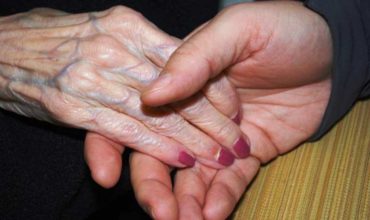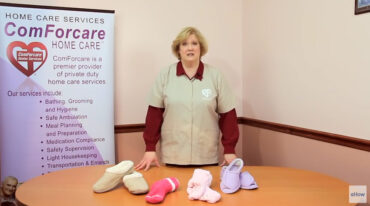Home health agencies provide medical care to help people rehabilitate in their homes from acute medical conditions such as accidents, illnesses or surgery. Services provided include registered nurses, speech and physical therapists, social services and aides to help with bathing, dressing, moving around and so forth. Home health agencies also typically provide hospice care which it is palliative care for people who are not expected to live longer than six months. This can be provided in the home or in a facility.
Home Care Services
Although home health agencies are privately owned, Medicare is the principle payer for their services. Home health services through Medicare are available under parts A and B. In order to qualify for Medicare homecare a person must have a skilled need, must be homebound and there must be a plan of care ordered by a Physician.
Prior to 1997 Medicare typically paid for home care for as long as it was needed. Prior to 1997 annual Medicare costs were almost double the amount cited above. In order to save money Medicare has since gone to a prospective payment system where, according to the plan of care, a certain amount of money is allocated to resolve the skilled need for the patient.
Monies are typically provided for a period of up to 60 days. If the patient recovers sooner then money may have to be reshuffled to other patients who are not responding as well. At the point where the patient does not respond or improve, no more Medicare money is forthcoming. After Medicare cuts off, a person continuing to need long-term care services must find sources other than Medicare.
Home health agencies deliver a variety of skilled services. The plan of care usually includes custodial services to help the care-recipient remain in the home. These would include an aide for an hour or two a day to help with bathing, dressing and transferring. If there is time remaining other personal services may be offered as well.
Recently Medicare has redefined what it means by “homebound” to allow recipients to leave the home on a limited basis. Beginning in 2003 and ending three years later, Medicare is testing, with a very small test group, a program where selected home health agencies can provide adult day health care instead of home health services. If successful the program will offer a new dimension in Medicare home care.
In addition, under the new definition, Medicare will also allow and pay for home visits from doctors who specialize in homebound elderly patients. Limited office visits are also allowed under the new definition. Finally, in the past few years Medicare is paying for home telehealth visits through a home telehealth, computer work station. Telehealth is being used with some success to provide home care in rural areas where it would be difficult to arrange the personal visit from a home health care agency.
Hospice Services
The majority of home health agencies also offer hospice care which is covered by Medicare and by private or group health insurance policies.
Note: Many families or their loved ones’ doctors often wait too long to order hospice. Hospice is a very valuable service and should be ordered at an earlier stage of illness. Many doctors or family don’t often consider hospice for Alzheimer’s, degenerative old age or other debilitating illnesses where a person is going downhill fast. They should.
It is unfortunate that many people who died in a hospital emergency room or who received heroic treatments to prolong life in a hospital may have had the alternative of dying at home in familiar surroundings, with family or other loved ones at their side.
When someone is in crisis or appears to be going downhill fast but there really is no hope for recovery, family often call 911 and start a process which can result in great stress and great emotional discomfort. The loved one who is dying ends up in a hospital and may die there or be transferred to a nursing home where death eventually occurs.
When there is no longer hope for prolonging life, especially when this decision is made months in advance, hospice is usually a better alternative to other medical intervention.
Hospice is a form of palliative care for patients who are terminally ill. A commonly used definition for terminally ill patients is, “patients who have a progressive, incurable illness that will end in death despite good treatment, and who are sick enough that you would not be surprised if they died within six months.”
Hospice care is a valuable service and is generally underused except for terminal cancer patients. Hospice allows for compassion and dignity in the process of dying. Most families wait too long to have their doctor prescribe hospice from Medicare. It should be considered at an earlier stage.
Hospice involves a team approach using the following providers.
- Family caregivers;
- The patient’ s personal physician;
- Hospice physician (or medical director);
- Nurses;
- Home health aides;
- Social workers;
- Clergy or other counselors;
- Trained volunteers; and
- Speech, physical, and occupational therapists, if needed.
The purpose of hospice is the following:
- Manages the patient’s pain and symptoms;
- Assists the patient with the emotional and psychosocial and spiritual aspects of dying;
- Provides needed medications, medical supplies, and equipment;
- Coaches the family on how to care for the patient;
- Delivers special services like speech and physical therapy when needed;
- Makes short-term inpatient care available when pain or symptoms become too difficult to manage at home, or the caregiver needs respite time; and
- Provides bereavement care and counseling to surviving family and friends.
A person can receive hospice from Medicare if he or she is
- eligible for Medicare Part A (Hospital Insurance), and
- the doctor and the hospice medical director certify that the person is terminally ill and probably has less than six months to live, and
- the person or a family member signs a statement choosing hospice care instead of routine Medicare covered benefits for the terminal illness, and
- care is received from a Medicare-approved hospice program.
A person may continue to receive regular Medicare benefits from his or her customary doctors for conditions not related to the hospice condition.






